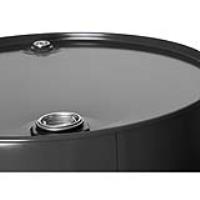 Add My Company
Add My Company
Sign In
A Guide to Steel Drums
26-10-2020

Steel drums are some of the most versatile and robust containers in popular usage throughout many industrial and commercial sectors. They can be found in warehouses and transport depots across the world, stocking all manner of industrial goods from foodstuffs to hazardous chemicals.
Steel drums are hard wearing, cost effective, reusable, and long lasting. They are perfectly suited to fulfil a wide range of industrial storage and transportation needs. However, there are several varieties of steel drums on the market, so in this article our experts at ITP Packaging provide a detailed breakdown and guide to steel drums.
WHAT ARE STEEL DRUMS?
Steel drums are cylindrical barrels designed to hold large quantities of industrial liquids or semi-liquids, such as oils, chemicals, or foodstuffs. The traditional steel drum is constructed from either carbon steel or stainless steel and is generally produced with a storage capacity of 210 litres.
There are two main types of steel drum: open-head and tight head. Both can be fitted with a range of nozzles and accessories to increase their range of use, and to make emptying and filling more efficient.
WHAT ARE STEEL DRUMS USED FOR?
Steel drums designed for industrial usage need to be UN certified and approved for holding hazardous liquids and solids. That means that steel drums can hold hazardous waste and dangerous chemicals safely. But these are versatile containers, and they can also be food-grade certified, enabling them to be used in an industrial capacity by the food industry.
Of course, it’s important to remember that cross-contamination must be avoided at all times. While steel drums are reusable, they need to be thoroughly decontaminated after each use, particularly when the stored goods are being changed.
Steel drums have a number of common uses, and work well for long-term storage and transport. Their most popular uses include the following:
Storing water and other liquids
Storing fuel, including petrol and diesel
Storing foodstuffs, including spices, grains and powders
Storing oils and lubricants
Storing solvents, chemicals and pharmaceuticals
Storing hazardous waste
Storing sand
It’s important to note that some items are more suited to storage in steel drums than others. For example, long-term water storage can cause rusting, while food items should be stored in drum liners to further protect them.
THE BENEFITS OF STEEL DRUMS IN AN INDUSTRIAL CAPACITY
Steel drums have a variety of benefits when they are employed for use in an industrial capacity. They not only have a wide variety of uses, but are hard wearing and reusable, too.
Here are the major benefits of using steel drums in an industrial capacity:
Versatility: they offer a wide range of potential uses.
Protection: they’re thick and able to safely withstand large blows or knocks when in transport.
Robustness: they’re hard wearing, long lasting and require little upkeep.
Reusable: they can be reused time and time again.
Repurposable: even at the end of their lifespan, steel drums can be repurposed and reconditioned for further use.
Cost-effective: they have a long lifespan, offering excellent value for money over an extended period of time.
Transportable: they can be safely transported in lorries and container ships.
Storable: they can be stacked and stored in an industrial capacity, using forklifts and other machinery.
Steel drums have a number of benefits over other traditional storage devices. Compared to blue plastic drums or fibre drums they are stronger and much more resilient, while compared to intermediate bulk containers (IBCs), they can fulfil a wider variety of functions and have much more versatility.
DIFFERENT TYPES OF STEEL DRUMS
There are several varieties of steel drums available for purchase, so it’s important to select the correct type of drum for your needs. For example, some drums are not UN certified, while others may have thinner linings.
The major difference is in the type of steel used for production. The two most common varieties are carbon steel and stainless steel.
Stainless steel is the preferred material in most industrial capacities, as it offers a more highly galvanised and protective coating that carbon steel lacks. Stainless steel drums are therefore much more robust and longer lasting, as they aren’t as prone to rusting and contamination.
DIFFERENT SIZES OF STEEL DRUMS
The most popular steel drums are 210 litres in capacity (they might also be known as 45 imperial gallon drums or 55-gallon drums in the USA). There are several other sizes that are less common, however. These include small 5-litre drums and 180-litre drums.
Drums can vary slightly in thickness. The thicker the drum, the sturdier it’s going to be. 210-litre drums have a standardised set of internal and external dimensions, which correspond to the following:
INTERNAL DIMENSIONS
572mm diameter (22.5 inches)
851mm height (33.5 inches)
EXTERNAL DIMENSIONS
584mm diameter (23 inches)
876mm height (34.5 inches)
OPEN-HEAD VS. TIGHT-HEAD STEEL DRUMS
Steel drums are designated as either open-head or tight-head steel drums. The designation refers to the type of opening found at the top or bottom of the barrel. Both have advantages and disadvantages.
OPEN-HEAD STEEL DRUMS
Open-head steel drums are so-called because they have a wide opening at the top (or bottom) of the barrel. Open-head drums might also be referred to as open-top, because the lid or covering can be completely removed and replaced as required.
Open-head drums are easy to fill with liquids and they can be safely and securely fastened using steel clamps. These seals can be fitted with tamper-proof devices when barrels are in storage or transport. The downside of open-head drums is that they are more prone to leakages and spillages if the lid is damaged.
TIGHT-HEAD STEEL DRUMS
Tight-head steel drums vary in that they have no large opening or removable lid at the top of the barrel. Instead, tight-head drums have just one or two small access points, which are usually sealed shut with an industrial bung.
Tight-head steel drums are much more secure than the open-head ones, however they’re also more difficult to fill and to empty. The openings can be fitted with nozzles or taps to make emptying easier, as long as there is a discharge opening on the bottom of the barrel.
ACCESSORIES FOR STEEL DRUMS
Steel drums can be fitted with a range of accessories, aiming to produce further versatility or to prolong the lifespan of the barrel and protect the goods inside.
Aside from the bungs and nozzles required for sealing and emptying barrels, steel drums can also be kitted out with a selection of drum liners.
Drum liners are an inner, protective layer that allows liquids to be stored in the barrel without ever touching the inside of the barrel. Drum liners are always recommended when storing or transporting foodstuffs, as they help to avoid contamination.
Drum liners are also useful for other purposes. Anti-static liners can help you to avoid any unwanted interference when transporting highly charged chemicals or goods, while foil liners can help prevent moisture build-ups during storage.
In addition to liners, barrels can also be kitted out with dust coverings or external covers to protect against weather damage when in storage or transport.
CARE AND UPKEEP OF STEEL DRUMS
Steel drums need to be cared for regularly in order for them to last the full length of their intended lifespan. They should be cleaned and decontaminated after every use, especially if chemicals or other hazardous items are being stored inside them.
As mentioned, drum liners are an excellent way to prevent contamination and protect the coating of steel drums. The drum liners should be stored inside or undercover and away from variable heats, especially extreme heat or extreme cold temperatures. Steel drums should also be transported according to health and safety regulations, and be regularly inspected for damage or wear and tear.
RECONDITIONED STEEL DRUMS
Drums can last up to twenty years if they are properly cleaned after each use but their lifespan can be extended beyond this too. Specialist companies are able to repurpose and recondition steel drums that are nearing the end of their lifespan, or drums that have sustained damage or too much general wear and tear.
Reconditioned drums can be much cheaper to purchase than new steel drums, while also lowering your carbon footprint. However, it’s important to be aware that reconditioned steel drums need to have been thoroughly decontaminated and they aren’t always suitable for hazardous waste or foodstuffs due to their age.
CONTACT ITP PACKAGING TO ORDER YOUR STEEL DRUMS
ITP Packaging stocks a wide range of steel drums including both open-head and tight-head varieties. We also offer a comprehensive array of add-ons and accessories, including drum liners.
Our staff are experts in the field of industrial packaging and are happy to help you with your storage needs. Contact the friendly team at ITP Packaging today to place your steel drum order.
For more information on A Guide to Steel Drums talk to ITP Packaging Ltd
Enquire Now
List your company on FindTheNeedle.

